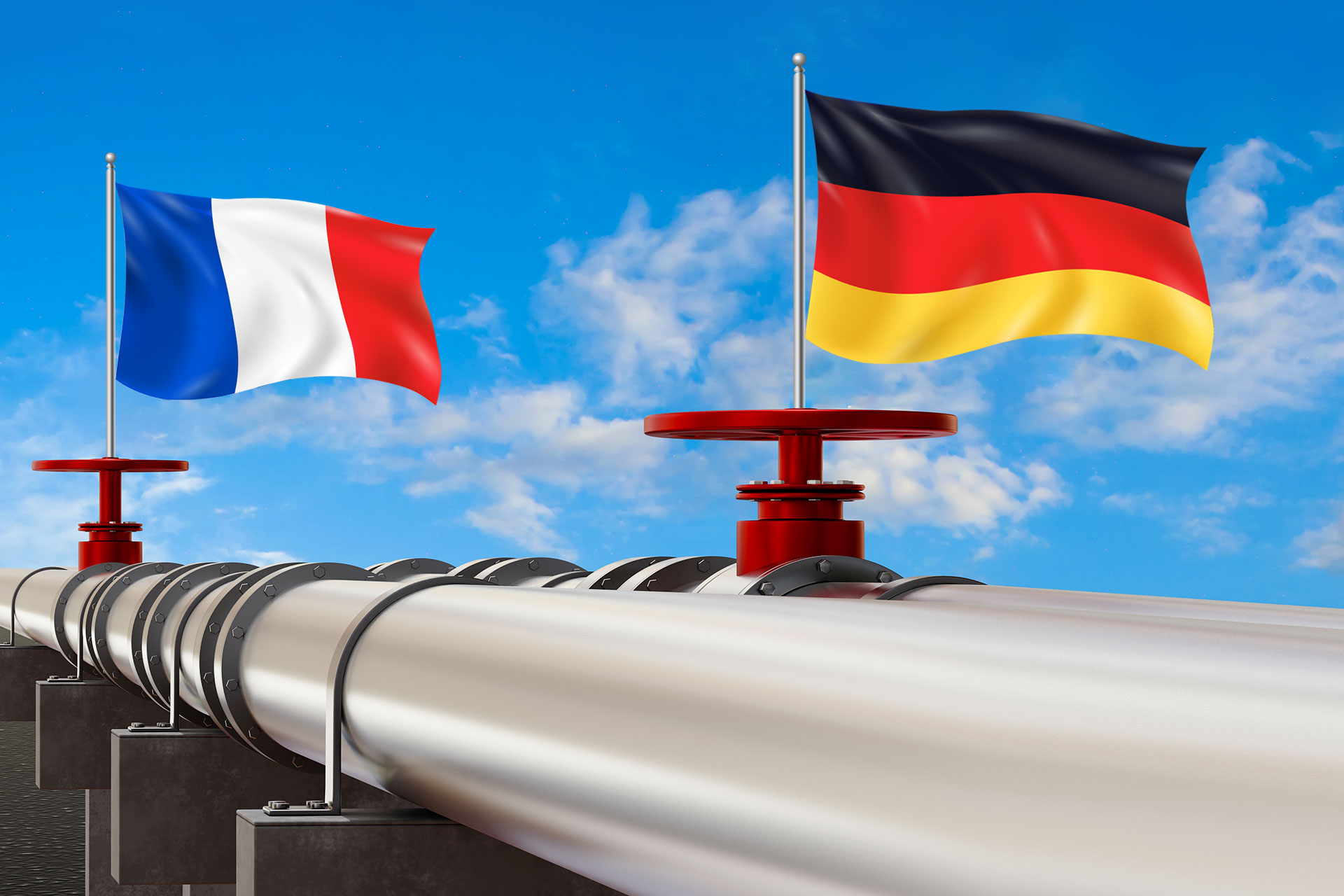Today, Thursday, France began for the first time to send gas directly to Germany as part of European solidarity in the field of energy to confront the halt in Russian gas shipments, while Spain expressed its willingness to increase gas exports to France, amid European efforts to reach the maximum level of stocks in anticipation of the upcoming winter.
The French company "GRTgaz" - the operator of a gas pipeline network - said that Germany today received its first direct shipments of gas from France via a pipeline link, under an agreement aimed at helping the two countries deal with current energy supply problems.
The first deliveries of gas to Germany began this morning, passing through the cities of Obergailbach (in the Moselle region) on the French side and Middlesheim on the German side, at the meeting point of the gas network lines, according to the company.
France is less dependent on Russian imports from Germany because it gets most of its needs from Norway and through LNG shipments.
The company said that it will initially deliver the equivalent of 31 gigawatts per hour per day using a pipeline in the Moselle region, and said in a statement that the maximum capacity of the new gas connection is 100 gigawatts per hour per day.
Although new inflows at full capacity represent less than 2% of Germany's daily needs, direct supplies from France are eagerly awaited as Berlin seeks alternative supplies and preserves its industries.
Under the deal reached by the two largest eurozone countries in the wake of the Russia-Ukraine war, Germany also pledged to supply France, which is currently experiencing outages in nuclear reactors, with additional electricity if needed.
Terry Troff, president of GRT Gas, told reporters he could not say when the 100 gigawatt-hour daily limit would be reached.
What about Spain?
Meanwhile, the Spanish Minister of Environmental Transformation, Teresa Ribera, said that her country is ready to increase the quantities of natural gas exported to France through a pipeline to the equivalent of 3.5 billion cubic meters annually, starting from the first of next November, compared to about two billion cubic meters currently.
The French newspaper "Les Echos" quoted the minister as saying that the pipeline is technically ready to transport the additional quantities, and that Spain is only waiting for France's request for additional gas quantities, according to the German news agency.
And Bloomberg News Agency had reported on July 28 that Spain could pump additional quantities of gas to France during the fall, thus reducing the severity of France's energy crisis.
Spain imports natural gas from Algeria through pipelines, in addition to importing quantities of liquefied gas, which is returned to the gaseous state to be pumped into the pipeline network.
European success
Europe was able to build up a large stock of natural gas during the past months, depending on alternative sources of Russian gas.
And the Bloomberg news agency reported that natural gas deposits in Europe were filled with a rate of 91.56 percent as of last Tuesday, which is the highest rate of filling warehouses according to the average filling rate over the past ten years.
It is expected that the filling rate will reach 95% by the beginning of next November, a figure that was only recorded in only two years over the past ten years.
It is easier to obtain natural gas during the warm summer in the northern hemisphere than during the cold winter months.
The price of natural gas from alternative sources of Russian gas is also much higher.

